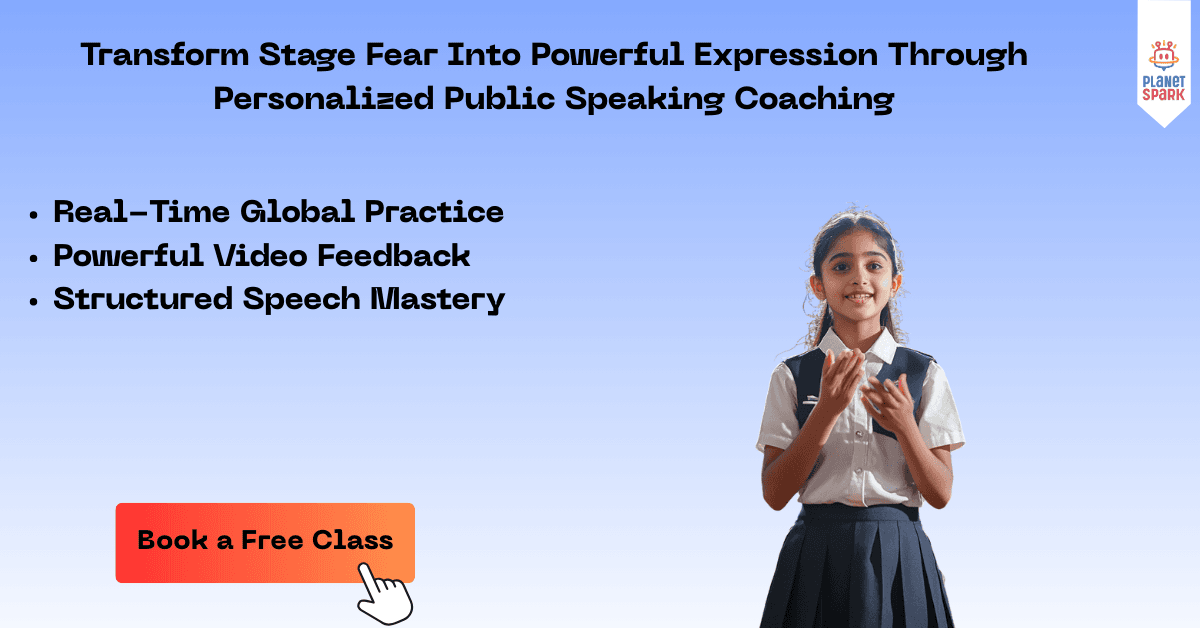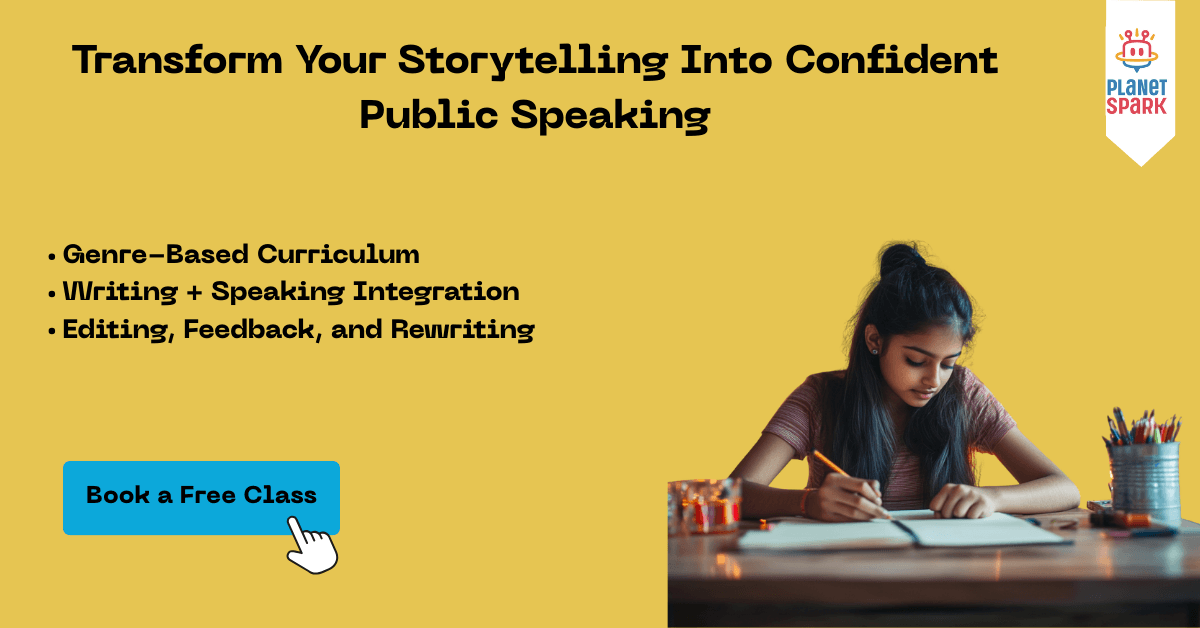Steps to Improve Vocabulary Skills in Children: Fun Tips
Last Updated At: 3 Sep 2025
10 min read

Every parent dreams of watching their child speak confidently, read fluently, and write with ease. But at the heart of all these skills lies one simple yet powerful foundation, vocabulary. Vocabulary is the collection of words a child knows and understands. The larger a child’s vocabulary, the more tools they have to communicate, express emotions, and comprehend information.
Strong vocabulary skills are not developed overnight. They require consistent exposure, practice, and encouragement. Unfortunately, in today’s fast-paced digital world, many children are more exposed to visual content than to rich, word-based interactions. This can limit their vocabulary growth if not balanced with meaningful learning experiences.

So how can parents and teachers address this? The answer lies in identifying practical, engaging, and effective steps to improve vocabulary skills in children. In this blog, we’ll explore strategies that not only build a strong vocabulary but also make the process enjoyable for kids. From reading and storytelling to word games and digital tools, these steps cover every aspect of vocabulary development in children.
Why Vocabulary Skills Matter in Children
Words are the building blocks of communication. Without a strong vocabulary, children may struggle to express themselves, understand what they read, or participate actively in discussions. Let’s look at why vocabulary is so essential.
Vocabulary and Academic Success
A strong vocabulary helps children grasp concepts more easily across subjects. Whether it’s understanding a science text, solving math word problems, or writing essays, vocabulary plays a key role. Studies show that children with a larger vocabulary perform better academically compared to their peers.
Vocabulary and Reading Comprehension
Reading comprehension depends heavily on knowing the meanings of words. When children encounter unfamiliar words too often, they lose track of the story or concept. On the other hand, kids with a strong vocabulary enjoy reading more, which further accelerates their vocabulary growth, creating a positive cycle.
Vocabulary grows stronger when spoken.
Vocabulary and Writing Skills
Good writing is not just about grammar; it’s about choosing the right words. Children with a rich vocabulary can add depth and clarity to their writing. They can avoid repetition by using synonyms and make their writing more expressive and engaging.
Vocabulary and Confidence
Imagine a child who wants to share their thoughts but doesn’t know the right words. This often leads to frustration and shyness. Children with strong vocabulary skills, however, express themselves clearly, participate in discussions, and even enjoy public speaking. This confidence benefits them not only in school but throughout life.
Simply put, vocabulary development in children is not optional, it is the key to unlocking their potential
Steps to Improve Vocabulary Skills in Children
Now that we understand the importance, let’s explore the most effective steps to improve vocabulary skills in children.
1. Encourage Regular Reading
Reading is one of the most powerful tools for vocabulary development in children. Books introduce children to words they may not hear in everyday conversations.
Practical Tips:
Start early with picture books and gradually move to chapter books.
Read aloud with your child to make the process interactive.
Ask questions about the story and explain unfamiliar words.
Encourage your child to summarize the story in their own words.
For example, if a child reads a story that uses the word “curious,” discuss its meaning and ask them to use it in a sentence like, “I am curious about dinosaurs.”
Consistent reading habits strengthen vocabulary while building imagination and focus.
Give your child the power of expression.
2. Make Learning Fun with Vocabulary Games
Children learn best when they are having fun. Vocabulary learning games combine entertainment with education, making word learning enjoyable.
Examples of Games:
Scrabble or Junior Scrabble: Teaches spelling and introduces new words.
Word Bingo: Kids listen for words and mark them on a card.
Crossword puzzles: Improves both word recall and critical thinking.
Pictionary: Encourages visual association with vocabulary words.
Online apps and quizzes: Engaging for tech-savvy kids.
These fun ways to improve vocabulary for kids reduce resistance to learning while increasing engagement.

3. Use Conversations to Teach New Words
Children are constantly learning from their environment, and conversations provide the perfect opportunity to introduce new words.
How to Do This:
Replace simple words with richer alternatives. For example, instead of saying “the cake is big,” say “the cake is enormous.”
Explain the meaning immediately and provide context.
Encourage children to repeat the new word in their own sentences.
This step ensures that new words become a part of your child’s active vocabulary.
4. Promote Storytelling and Creative Writing
Storytelling allows children to use new vocabulary in imaginative contexts. Similarly, creative writing activities such as journaling, poem writing, or essays encourage them to explore language.
Benefits:
Improves sentence structure and grammar.
Strengthens memory by applying words in meaningful ways.
Encourages self-expression.
For example, a child might write: “The enormous castle looked mysterious and magical.” Here, they use multiple new words in a single context.
Strong vocabulary deserves a strong voice.
5. Teach Vocabulary Through Context
Memorizing lists of words rarely works in the long run. Teaching vocabulary through context helps children understand and remember words better.
Examples:
Introduce “fragile” while handling glassware.
Explain “brave” through a story of a superhero.
Use “generous” when describing someone sharing toys.
This method creates strong associations that help with recall.
6. Play Word Association and Synonym Games
Games like word association make vocabulary practice exciting.
Activity Example:
Parent: “Happy”
Child: “Joyful”
Parent: “Excited”
Child: “Thrilled”
These games encourage children to think quickly and expand their vocabulary with synonyms, building both knowledge and confidence.
7. Use Digital Tools and Apps
In the digital age, apps and online platforms can support vocabulary learning. Many apps use interactive features like quizzes, flashcards, and challenges to make learning engaging.
Tips for Parents:
Choose age-appropriate apps.
Set time limits to avoid overexposure to screens.
Combine digital learning with offline activities for balance.
Digital tools can complement traditional learning methods, especially for tech-loving kids.
8. Encourage Public Speaking and Discussions
Public speaking is a fantastic way to encourage children to use new words.
Activities to Try:
Ask your child to explain their favorite toy or book to the family.
Organize mini-debates on fun topics like “Cats vs. Dogs.”
Encourage classroom participation and presentations.
When children use new vocabulary in public, they develop confidence and improve retention.
Transform vocabulary practice into confident communication
9. Use Flashcards and Visual Learning
Visual learners benefit greatly from flashcards and word walls.
Ideas:
Create colorful flashcards with words and pictures.
Add a “word of the week” to a family bulletin board.
Encourage kids to illustrate words through drawings.
Visual aids make abstract words concrete, especially for younger children.
10. Reinforce Progress with Praise
Children thrive when their efforts are acknowledged.
How to Reinforce:
Praise children when they use new words correctly.
Create a reward system like stickers or stars for learning new words.
Encourage them to share their vocabulary achievements with others.
Positive reinforcement builds motivation and creates a love for learning.
Fun Activities to Enhance Vocabulary in Children
Alongside the steps above, here are some fun activities to enhance vocabulary for children:
Word Jar Game: Add a new word daily and ask your child to use it in different sentences.
Treasure Hunt: Hide objects and give word-based clues for kids to find them.
Role-Play Games: Pretend to be doctors, teachers, or explorers while using new words.
Poetry Corner: Encourage children to create short rhymes or poems with new vocabulary.
Group Storytelling: Start a story and let kids continue it using new words.
These activities make vocabulary learning exciting and memorable.

Best Methods to Teach Vocabulary to Kids
While there are many strategies, the best methods combine consistency, creativity, and context.
Daily Reading: Builds exposure to diverse words.
Games and Puzzles: Keeps motivation high.
Conversational Learning: Makes vocabulary practical.
Writing and Storytelling: Encourages creative use of words.
Digital Learning: Adds variety and engagement.
Positive Reinforcement: Ensures long-term enthusiasm.
Together, these approaches create a well-rounded vocabulary development journey.
Vocabulary is the gateway to learning. When children acquire strong vocabulary skills, they not only excel in academics but also gain the confidence to express themselves in every aspect of life. By following these steps to improve vocabulary skills in children, parents and teachers can ensure that learning becomes both effective and enjoyable.
"A strong vocabulary is the key that unlocks a child’s ability to learn, imagine, and succeed."
How PlanetSpark’s Public Speaking Course Boosts Vocabulary Skills in Children
Building a strong vocabulary is only the first step, the real impact comes when children use those words in meaningful communication. This is where PlanetSpark’s Public Speaking Course becomes an ideal extension to the vocabulary journey.
Public speaking encourages children to actively use new words while speaking in front of others, helping them build fluency, confidence, and clarity. Through engaging activities like debates, storytelling sessions, role-plays, and presentations, kids learn to apply vocabulary in real-life contexts rather than just memorizing it.
Key Benefits of PlanetSpark’s Public Speaking Course:
Practical Vocabulary Usage: Children learn to weave new words into speeches, improving retention and usage.
Confidence Building: Speaking in front of peers reduces hesitation and boosts self-expression.
Interactive Learning: Fun exercises like extempore speaking, mock interviews, and group discussions make learning dynamic.
Structured Guidance: Expert mentors ensure children develop both vocabulary and communication skills step by step.
By combining vocabulary-building strategies with structured public speaking practice, PlanetSpark helps children become articulate, confident communicators who are ready to excel in academics and beyond.
Unlock your child’s communication potential with PlanetSpark’s Public Speaking Course.
Frequently Asked Questions (FAQs)
Q1. What are the best steps to improve vocabulary skills in children at home?
The best steps include regular reading, playing vocabulary games, encouraging storytelling, using new words in conversations, and practicing with flashcards. These simple methods help children build vocabulary naturally.
Q2. How can parents support steps to improve vocabulary skills in children?
Parents can create a reading routine, introduce new words during daily interactions, reward progress, and make learning fun with activities like word jars or treasure hunts.
Q3. Why are steps to improve vocabulary skills in children important for academics?
Vocabulary is the foundation of reading comprehension, writing, and communication. Children with strong vocabulary skills perform better in school, as they can understand concepts and express ideas more clearly.
Q4. What role do fun activities play in the steps to improve vocabulary skills in children?
Fun activities like role-play, poetry writing, or word association games keep children engaged and motivated, ensuring that vocabulary learning feels enjoyable instead of stressful.
Q5. Can public speaking be included in the steps to improve vocabulary skills in children?
Yes, public speaking helps children actively use new words, boosting their confidence, fluency, and clarity. Courses like PlanetSpark’s Public Speaking Program are excellent for applying vocabulary in real-life contexts.
Q6. What age is ideal to start focusing on vocabulary development in children?
Vocabulary development can start as early as preschool. The earlier children are exposed to words through reading, conversations, and interactive activities, the stronger their vocabulary foundation will be.
Personalized Communication Report
Record a video to get a AI generated personalized communication report for your child
Select Learner's Class

Hi There, want to try these
tips for your child with
LIVE with our expert coach?
Let's check your child's
English fluency
